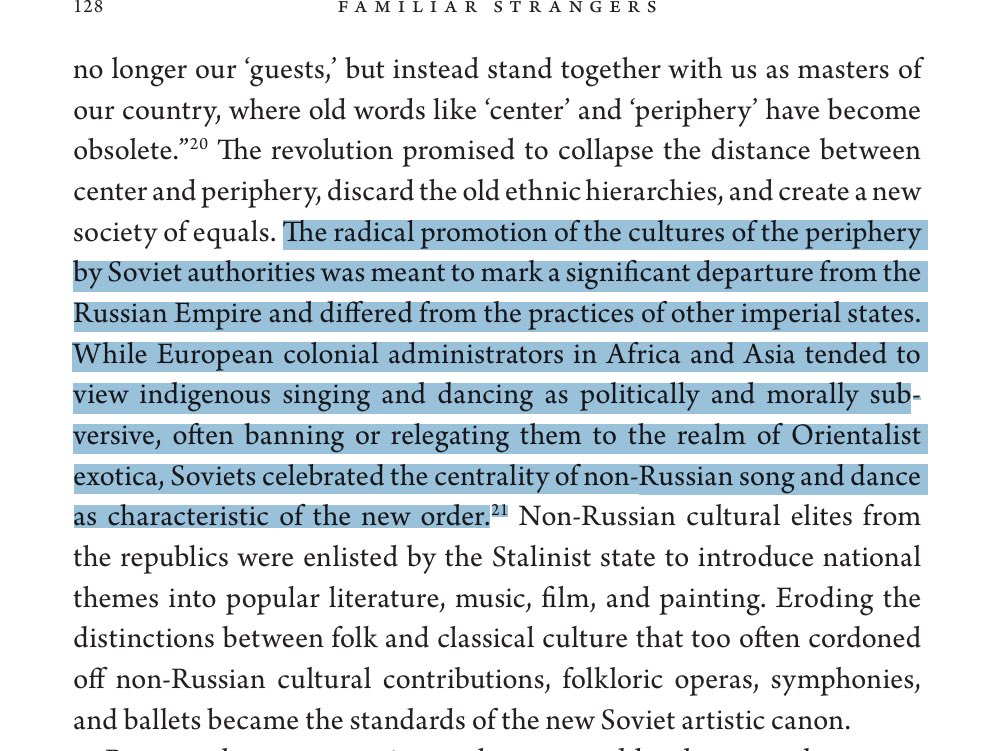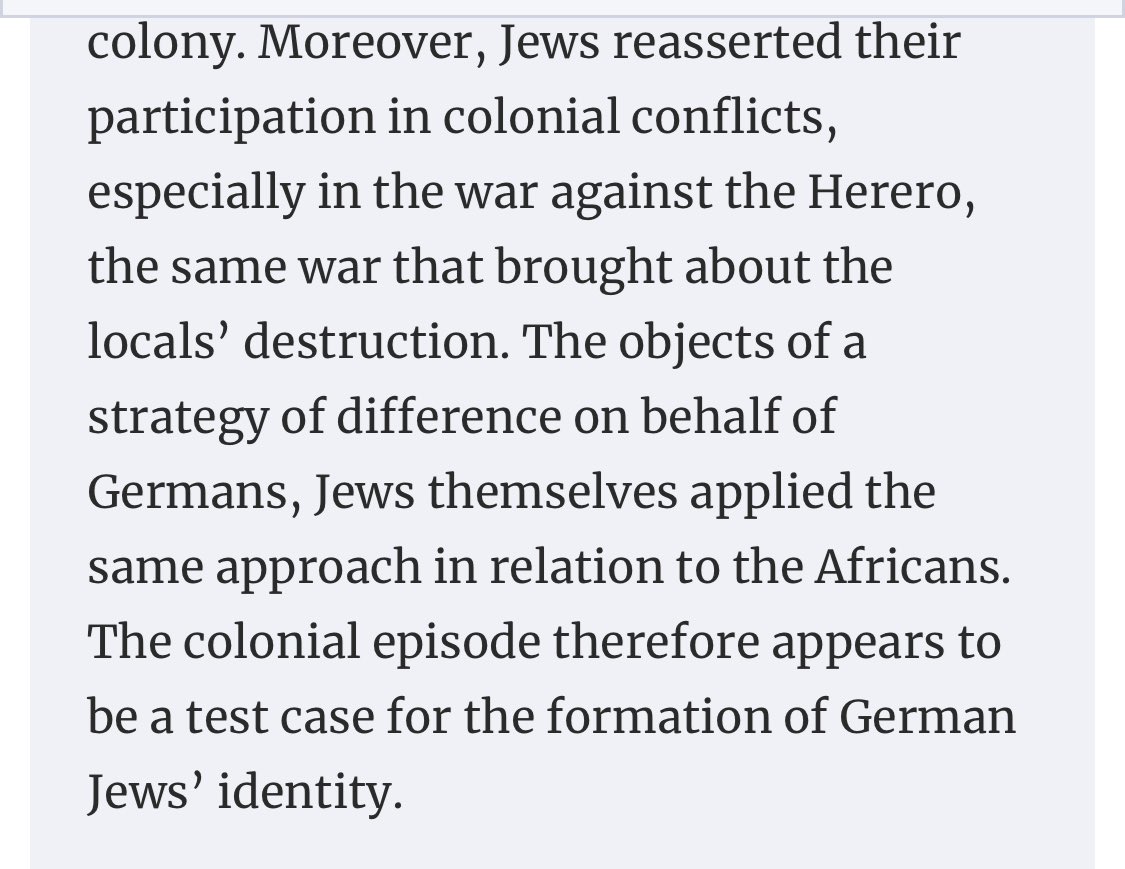
writing about Soviet history at https://t.co/ayItpd4Pqi
4 subscribers
How to get URL link on X (Twitter) App


https://twitter.com/bad_histories/status/1802443805276397889



 Stalin, like any war leader, made errors, especially early on. What scholars note about Stalin is his remarkable flexibility and adaptability, securing what was arguably the greatest “comeback” in military history. See this thread where I review the literature
Stalin, like any war leader, made errors, especially early on. What scholars note about Stalin is his remarkable flexibility and adaptability, securing what was arguably the greatest “comeback” in military history. See this thread where I review the literature https://twitter.com/After__History/status/1700913918879924325

https://twitter.com/petite_michelle/status/1796099190981906525

 Arguably no other figure has been more influential in shaping this ideology than Donstov, whose integral nationalism understood Russian empire building as not primarily dictated by geopolitical motives or economic factors but a deeply ingrained civilizational and racial logic
Arguably no other figure has been more influential in shaping this ideology than Donstov, whose integral nationalism understood Russian empire building as not primarily dictated by geopolitical motives or economic factors but a deeply ingrained civilizational and racial logic 


https://twitter.com/projectliberal/status/1792222666759221616


 From Ukraine to the Caucuses to Central Asia, the USSR encompassed territory that included, at one point, 1/6 of the earth, representing an incredibly diverse array of cultures. It’s inaccurate to reduce the USSR, and it’s cuisine, to a single ethnicity
From Ukraine to the Caucuses to Central Asia, the USSR encompassed territory that included, at one point, 1/6 of the earth, representing an incredibly diverse array of cultures. It’s inaccurate to reduce the USSR, and it’s cuisine, to a single ethnicity

https://twitter.com/notpotbol/status/1794458892262355335

 In the 1920s, Eugenics was endorsed and supported by the mainstream American science establishment. By the time eugenics lost sway, tens of thousands of sterilizations had been performed with the backing of the nation’s scientific community
In the 1920s, Eugenics was endorsed and supported by the mainstream American science establishment. By the time eugenics lost sway, tens of thousands of sterilizations had been performed with the backing of the nation’s scientific community 


https://twitter.com/eliotrosew75588/status/1792411529528418393

 Georgians were a highly educated minority group, who, prior to the Russian revolution, often eagerly sought education in Russian schools. Here, many saw chauvinist policies of Russification as intertwined with economic domination of Russian bourgeoisie, drawing them to socialism
Georgians were a highly educated minority group, who, prior to the Russian revolution, often eagerly sought education in Russian schools. Here, many saw chauvinist policies of Russification as intertwined with economic domination of Russian bourgeoisie, drawing them to socialism

https://twitter.com/ziyadhatesrsf/status/1791499753047380171

 This is not a marginal idea, but one that is embraced by far right populist parties across Europe, as well as prominent European intellectuals. In this theory, Muslims are imbued with a voracious and innate drive for power, infiltrating and dominating state institutions
This is not a marginal idea, but one that is embraced by far right populist parties across Europe, as well as prominent European intellectuals. In this theory, Muslims are imbued with a voracious and innate drive for power, infiltrating and dominating state institutions 

https://twitter.com/infrahaz/status/1787555035942896058

 Washington led efforts to displace, depopulate, and settle Ohio and New York, directing unimaginable violence upon native inhabitants in order to seize their land. Settlement was one reason for this, but it went beyond that—Washington was compelled by personal economic interests
Washington led efforts to displace, depopulate, and settle Ohio and New York, directing unimaginable violence upon native inhabitants in order to seize their land. Settlement was one reason for this, but it went beyond that—Washington was compelled by personal economic interests 


https://twitter.com/senfettermanpa/status/1787158431880679860



 In a close reading of Mein Kampf, historian Ishay Landa notes how the primary feature of Hitler’s antisemitism was not an association of Jews with banking and finance, but with political radicalism, inciting rebellion, Marxism, and anti-capitalism
In a close reading of Mein Kampf, historian Ishay Landa notes how the primary feature of Hitler’s antisemitism was not an association of Jews with banking and finance, but with political radicalism, inciting rebellion, Marxism, and anti-capitalism 


https://twitter.com/1922roman/status/1506071649182965763


 Historian Amalia Forclaz describes this process as the fascistization of anti-slavery politics. It was not done out of any interest in liberation, but establishing whites as the benevolent stewards of uncivilized colonized subjects, facilitating a new kind of nationalist project
Historian Amalia Forclaz describes this process as the fascistization of anti-slavery politics. It was not done out of any interest in liberation, but establishing whites as the benevolent stewards of uncivilized colonized subjects, facilitating a new kind of nationalist project

https://twitter.com/MarginalScri/status/1729898528963453390

 If you look at the literature, contemporary leading scholars in the field (Holquist, Weiner, Martin, Hirsch, Khalid, Suny, etc) never describe this oppression as “racism” or “racial.” Warranted criticism of brutality abounds, but they’re careful with how categories are used
If you look at the literature, contemporary leading scholars in the field (Holquist, Weiner, Martin, Hirsch, Khalid, Suny, etc) never describe this oppression as “racism” or “racial.” Warranted criticism of brutality abounds, but they’re careful with how categories are used

https://twitter.com/heshidicjudaism/status/1727702050845434265

 This is not an exoneration given that Soviet policies could be terribly violent and exclusionary, but racism has a specific meaning that simply does not apply to the nature of Soviet national repression, which operated on a entirely distinct ideological foundation
This is not an exoneration given that Soviet policies could be terribly violent and exclusionary, but racism has a specific meaning that simply does not apply to the nature of Soviet national repression, which operated on a entirely distinct ideological foundation

https://twitter.com/wizardouscat/status/1721349199252304002

 T. Martin writes “Affirmative action for all non-Russian people necessarily implied reverse discrimination against Russians” It would be unthinkable for a colonial state to favor natives over white colonists.Soviet egalitarian policies were part and parcel of “building socialism”
T. Martin writes “Affirmative action for all non-Russian people necessarily implied reverse discrimination against Russians” It would be unthinkable for a colonial state to favor natives over white colonists.Soviet egalitarian policies were part and parcel of “building socialism”

https://twitter.com/matthewfdesmond/status/1722386863195881771



 Although there was a tension here—Despite taking an active role in subjugating Africans, Jews were derided by many of their antisemitic German co-colonizers for being Jewish. Jews involved in colonization attempted to forge a patriotic German identity opposed to antisemitism
Although there was a tension here—Despite taking an active role in subjugating Africans, Jews were derided by many of their antisemitic German co-colonizers for being Jewish. Jews involved in colonization attempted to forge a patriotic German identity opposed to antisemitism

https://twitter.com/kpbismarck/status/1722686534699069487


 Without a basis of support in these key constituencies and the robust council system of local administration, a SR government could not govern without widespread resistance and intractable political crisis, and would have likely been overturned not long after it’s establishment
Without a basis of support in these key constituencies and the robust council system of local administration, a SR government could not govern without widespread resistance and intractable political crisis, and would have likely been overturned not long after it’s establishment

https://twitter.com/shashj/status/1719758772816515471

 This is why so many UN experts are now speaking of “genocide risk” in Gaza. Genocides are usually not the result of a master plan meticulously designed by a leader or state, but often arise through the contingency of military conflict or security threat perceived as existential
This is why so many UN experts are now speaking of “genocide risk” in Gaza. Genocides are usually not the result of a master plan meticulously designed by a leader or state, but often arise through the contingency of military conflict or security threat perceived as existential

https://twitter.com/lucas_gage_/status/1719364841209487504

 It is an highly effective form of war propaganda that is able to mobilize popular support for a military cause by rousing emotions through exaggerated or fabricated stories. The British mastery of this psychological warfare profoundly influenced Hitler and Goebbels
It is an highly effective form of war propaganda that is able to mobilize popular support for a military cause by rousing emotions through exaggerated or fabricated stories. The British mastery of this psychological warfare profoundly influenced Hitler and Goebbels 

https://twitter.com/tgarfd/status/1717681436319268904

 The starvation of the city’s population was enabled by a racial ideology that saw Slavs, Jews and other Soviet minorities as deserving of annihilation. The relentless and deliberate destruction of housing, schools, hospitals, etc. revealed the sheer brutality of Nazi warfare
The starvation of the city’s population was enabled by a racial ideology that saw Slavs, Jews and other Soviet minorities as deserving of annihilation. The relentless and deliberate destruction of housing, schools, hospitals, etc. revealed the sheer brutality of Nazi warfare



 The broad anti-Semitic consensus within Nazi germany was not initially exterminationist. The desire to wipe out Jews developed contingently out of developments in the war. Increasing Nazi vulnerability to military defeats had a radicalizing effect on their antisemitism
The broad anti-Semitic consensus within Nazi germany was not initially exterminationist. The desire to wipe out Jews developed contingently out of developments in the war. Increasing Nazi vulnerability to military defeats had a radicalizing effect on their antisemitism

https://twitter.com/mattyglesias/status/1715167832491671683



 The reporter, Chris McGreal, who covered the Rwandan genocide, wrote a recent article in the Guardian revealing a clear genocidal intent in Israeli leadership calls for collective punishment, failure to distinguish militants from civilians, and completely dehumanizing language
The reporter, Chris McGreal, who covered the Rwandan genocide, wrote a recent article in the Guardian revealing a clear genocidal intent in Israeli leadership calls for collective punishment, failure to distinguish militants from civilians, and completely dehumanizing language 

https://twitter.com/ericlevitz/status/1712967414986445146Turner’s revolt led to the massacring of countless “innocent” people. Yet, the historian Bryan Rommel-Ruiz is still right to describe it as “a shining moment in the otherwise dark history of American slavery … an example of slaves challenging an oppressive … regime”


https://twitter.com/tobiaschneider/status/1710989607473418469

 You can’t neatly separate the violent legacy of Dessalines from Louverture. Louverture allowed Dessalines and other generals to carry out mass violence, and was complicit in it. It’s a mistake to confuse Louvertures carefully crafted self-representation with historical reality
You can’t neatly separate the violent legacy of Dessalines from Louverture. Louverture allowed Dessalines and other generals to carry out mass violence, and was complicit in it. It’s a mistake to confuse Louvertures carefully crafted self-representation with historical reality